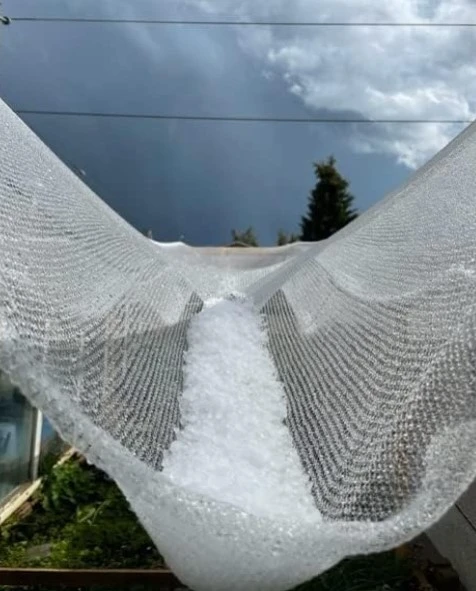-
 Afrikaans
Afrikaans -
 Albanian
Albanian -
 Amharic
Amharic -
 Arabic
Arabic -
 Armenian
Armenian -
 Azerbaijani
Azerbaijani -
 Basque
Basque -
 Belarusian
Belarusian -
 Bengali
Bengali -
 Bosnian
Bosnian -
 Bulgarian
Bulgarian -
 Catalan
Catalan -
 Cebuano
Cebuano -
 China
China -
 Corsican
Corsican -
 Croatian
Croatian -
 Czech
Czech -
 Danish
Danish -
 Dutch
Dutch -
 English
English -
 Esperanto
Esperanto -
 Estonian
Estonian -
 Finnish
Finnish -
 French
French -
 Frisian
Frisian -
 Galician
Galician -
 Georgian
Georgian -
 German
German -
 Greek
Greek -
 Gujarati
Gujarati -
 Haitian Creole
Haitian Creole -
 hausa
hausa -
 hawaiian
hawaiian -
 Hebrew
Hebrew -
 Hindi
Hindi -
 Miao
Miao -
 Hungarian
Hungarian -
 Icelandic
Icelandic -
 igbo
igbo -
 Indonesian
Indonesian -
 irish
irish -
 Italian
Italian -
 Japanese
Japanese -
 Javanese
Javanese -
 Kannada
Kannada -
 kazakh
kazakh -
 Khmer
Khmer -
 Rwandese
Rwandese -
 Korean
Korean -
 Kurdish
Kurdish -
 Kyrgyz
Kyrgyz -
 Lao
Lao -
 Latin
Latin -
 Latvian
Latvian -
 Lithuanian
Lithuanian -
 Luxembourgish
Luxembourgish -
 Macedonian
Macedonian -
 Malgashi
Malgashi -
 Malay
Malay -
 Malayalam
Malayalam -
 Maltese
Maltese -
 Maori
Maori -
 Marathi
Marathi -
 Mongolian
Mongolian -
 Myanmar
Myanmar -
 Nepali
Nepali -
 Norwegian
Norwegian -
 Norwegian
Norwegian -
 Occitan
Occitan -
 Pashto
Pashto -
 Persian
Persian -
 Polish
Polish -
 Portuguese
Portuguese -
 Punjabi
Punjabi -
 Romanian
Romanian -
 Russian
Russian -
 Samoan
Samoan -
 Scottish Gaelic
Scottish Gaelic -
 Serbian
Serbian -
 Sesotho
Sesotho -
 Shona
Shona -
 Sindhi
Sindhi -
 Sinhala
Sinhala -
 Slovak
Slovak -
 Slovenian
Slovenian -
 Somali
Somali -
 Spanish
Spanish -
 Sundanese
Sundanese -
 Swahili
Swahili -
 Swedish
Swedish -
 Tagalog
Tagalog -
 Tajik
Tajik -
 Tamil
Tamil -
 Tatar
Tatar -
 Telugu
Telugu -
 Thai
Thai -
 Turkish
Turkish -
 Turkmen
Turkmen -
 Ukrainian
Ukrainian -
 Urdu
Urdu -
 Uighur
Uighur -
 Uzbek
Uzbek -
 Vietnamese
Vietnamese -
 Welsh
Welsh -
 Bantu
Bantu -
 Yiddish
Yiddish -
 Yoruba
Yoruba -
 Zulu
Zulu
Jan . 09, 2025 10:53
Back to list
farm netting
Farm netting has emerged as a critical component in modern agriculture, driving both yield and quality improvements across diverse farming applications. As a product, it encapsulates decades of innovation, blending traditional farming practices with contemporary technology to address age-old challenges faced by farmers. Its usage spans a wide array of applications, including protecting crops from pests and harsh environmental conditions, optimizing light exposure, and improving water management.
The manufacturing of farm netting involves advanced materials science, ensuring durability and adaptability to various climatic conditions. By using UV-resistant polymers and customizable mesh sizes, manufacturers cater to a broad spectrum of agricultural requirements. This customization capability speaks to the product's expertise in meeting specific challenges faced by different types of crops and farming environments. Farm netting, therefore, not only represents a tool for protection but also an integral part of a strategic approach to modern farming. Experience shared by seasoned farmers often highlights the ease of installation and maintenance as key advantages of farm netting. Designed for both small-scale and large-scale operations, netting systems are versatile and scalable. Feedback from users underscores the product’s reliability and the long-term return on investment due to reduced crop losses and improved harvest quality. In conclusion, the adoption of farm netting is not just a trend but a well-supported advancement in agricultural practices. With endorsements from leading agronomists, support from agricultural institutions, and positive testimonials from farmers, farm netting embodies the principles of expertise, authority, and trustworthiness. It offers a practical solution to enduring challenges while enhancing the sustainable production of high-quality crops, aligning with the future direction of global agriculture. As the agricultural industry faces increasing pressures from climate change and market demands, farm netting stands as a reliable ally in ushering in a new era of efficient and sustainable farming.


The manufacturing of farm netting involves advanced materials science, ensuring durability and adaptability to various climatic conditions. By using UV-resistant polymers and customizable mesh sizes, manufacturers cater to a broad spectrum of agricultural requirements. This customization capability speaks to the product's expertise in meeting specific challenges faced by different types of crops and farming environments. Farm netting, therefore, not only represents a tool for protection but also an integral part of a strategic approach to modern farming. Experience shared by seasoned farmers often highlights the ease of installation and maintenance as key advantages of farm netting. Designed for both small-scale and large-scale operations, netting systems are versatile and scalable. Feedback from users underscores the product’s reliability and the long-term return on investment due to reduced crop losses and improved harvest quality. In conclusion, the adoption of farm netting is not just a trend but a well-supported advancement in agricultural practices. With endorsements from leading agronomists, support from agricultural institutions, and positive testimonials from farmers, farm netting embodies the principles of expertise, authority, and trustworthiness. It offers a practical solution to enduring challenges while enhancing the sustainable production of high-quality crops, aligning with the future direction of global agriculture. As the agricultural industry faces increasing pressures from climate change and market demands, farm netting stands as a reliable ally in ushering in a new era of efficient and sustainable farming.
Latest news
-
Shipping Plastic Bags for Every NeedNewsJul.24,2025
-
Safety Netting: Your Shield in ConstructionNewsJul.24,2025
-
Plastic Mesh Netting for Everyday UseNewsJul.24,2025
-
Nylon Netting for Every UseNewsJul.24,2025
-
Mesh Breeder Box for Fish TanksNewsJul.24,2025
-
Expanded Steel Mesh Offers Durable VersatilityNewsJul.24,2025











